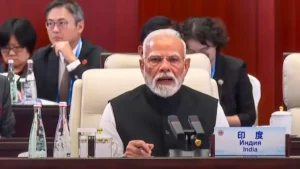US staff cuts hinder efforts to track, block forced-labour goods
The US suspended probes into imports it suspected to be slave-made because of staff and data shortages, a report found.
The United States’s efforts to block the illegal import of goods made by forced labour has been hampered by a lack of skilled staff and reliable data, a new report by a US government watchdog has found.
In recent years, US Customs and Border Protection (CBP) has suspended some investigations into imports the agency suspected to be tainted by slave labour because of staff shortages, a report published Tuesday by the US Government Accountability Office (GAO) report found.
About 20 million people globally are victims of labour trafficking, according to a 2016 estimate by the United Nations. More than $400bn worth of goods likely to be made by forced labour enter the US market each year, according to estimates by the non-profit Human Trafficking Institute.
Under a 2016 law, it is illegal to import goods into the US that are made entirely or in part by forced labour – which includes prison work, bonded labour and child labour.
Recent seizures by US officials include rubber gloves from Malaysia and products such as cotton and clothes from Xinjiang, China. The region is home to many Muslim Uighur people – a minority group that has faced mass detention in government camps.
The GAO report analysed the CBP’s performance from 2016 to 2019, during which time it issued about 13 detention orders. The agency has ramped up actions and levied at least 13 more import bans this year, most involving goods made in Xinjiang.
Yet the watchdog said issues including limited data and a lack of targets meant the CBP was unable to monitor its own performance and best allocate resources.
“CBP has increased forced labour investigations and civil enforcement actions, but managers lack complete and consistent data summarizing cases,” said the GAO report.
In one CBP spreadsheet reviewed by GAO, some entries incorrectly listed the maker of suspect goods instead of detailing progress on a case, while data on sources of evidence was scant.
“[CBP] faces challenges enforcing the prohibition on forced labour imports with current staffing levels,” the report said.
In response, the Department of Homeland Security – which oversees the CBP – said it accepted the GAO recommendations and would look at staffing, improve data and set targets for itself.
The CBP and DHS could not be reached for further comment by the Thomson Reuters Foundation.
The CBP in July told the Thomson Reuters Foundation that it aimed to expand its forced labour division, and increase probes.
A company facing a detention order can sell elsewhere or produce documents to demonstrate due diligence and show the goods are slave labour-free.










